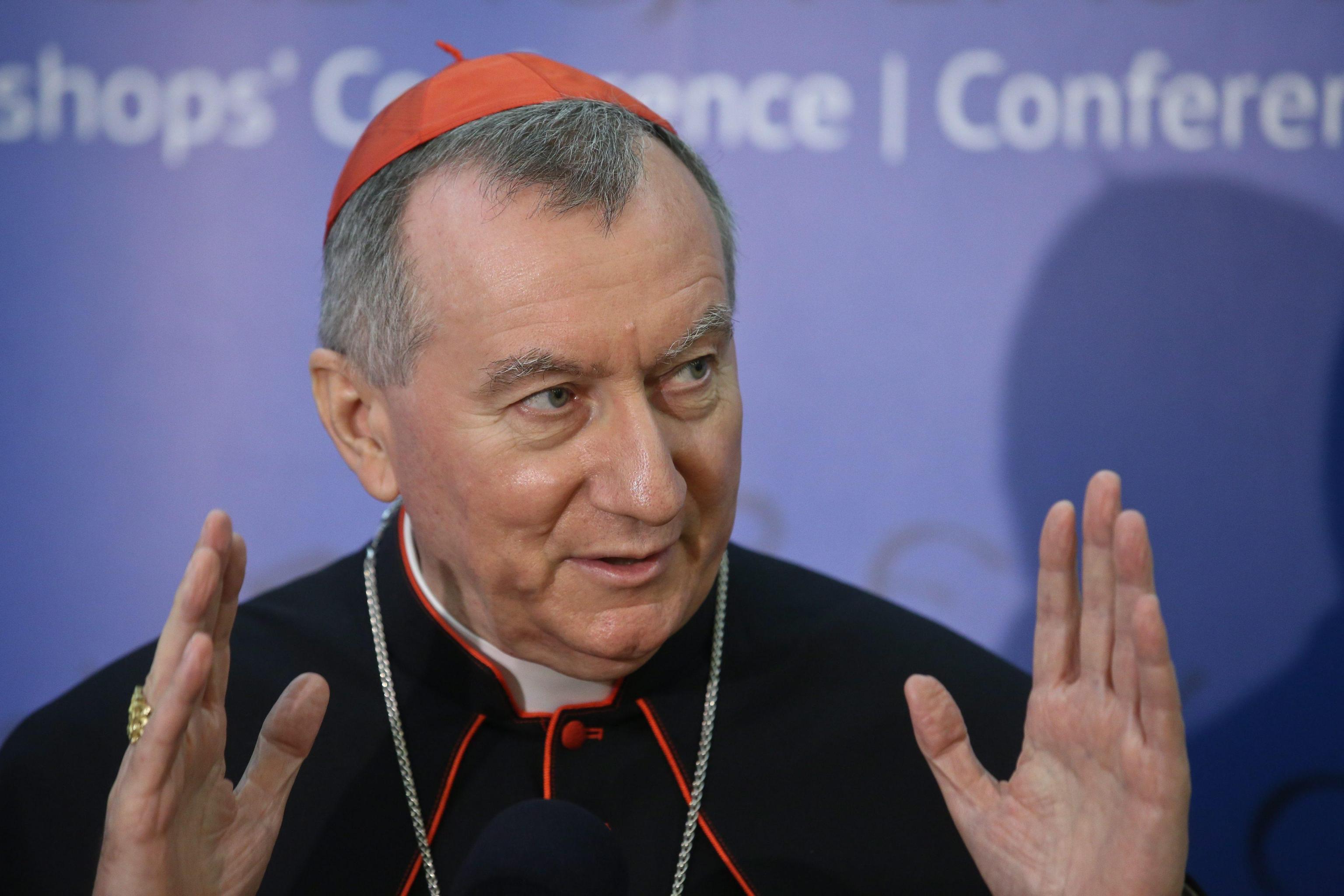The Vatican Secretary of State, Cardinal Pietro Parolin, on Wednesday participated in a discussion at the World Economic Forum in Davos.
The Holy See’s chief diplomat said Pope Francis has given three goals for Vatican diplomacy: To fight poverty, to build bridges, and to achieve peace in concrete situations.
“Take into account that the diplomacy of the Holy See is not so huge in resources, in personnel… we are very limited in a certain sense,” – Cardinal Parolin said – “It is impossible to do everything, but we would like to help.”
The Cardinal said the role of the Holy See is not only to proclaim principles, but to concretely help people in difficult situations. He said the presence of the Catholic Church in most countries around the world is a great benefit for his work.
“We have people on the ground – on the spot – we have missionaries, we have sisters, we have lay people,” Cardinal Parolin said, adding they not only give information to the Holy See, but also offer suggestions on how to resolve “difficult situations.”
He said the Vatican seeks “to protect, to defend, to promote religious freedom,” calling it “the first human right.”
“The centrality of the person is transcendence, and the fact that the person is called to be the brother of other human beings, this idea of fraternity,” – Cardinal Parolin explained – “If we don’t have it clear that we are brothers and sisters, and that we are responsible for others, I think that … other objectives will prevail, and will in the end damage and destroy the person and the community.”
Cardinal Parolin also addressed the current “period of crisis” in Europe.
“European unity has brought great benefit to the European continent, we should not forget that,” – he said – “And maybe one of our problems of today, is that the young generation does not recognize this benefit.”
First among these is the 60 years of peace after the devastation of the First and Second World Wars, and the benefits stemming from the free circulation of people and ideas throughout the continent.
The Cardinal said what was needed was to give once again “a soul to Europe.”
“I would like also to stress the importance of the religions,” Cardinal Parolin said.
“Religions cannot be left only on the private ground; it is not only the expression of the personal feelings of the person, but religions have something to say also in a public arena,” – the Cardinal continued – “Of course in dialogue with all the faiths, we are not asking nor requesting any privilege for the Catholic Church…we know that now we live in a pluralistic society where there are so many expressions of religious belief and religious faith; but I think that it is important that the authorities…recognize the public role that religions could give to the public life.”
Cardinal Parolin used this discussion to say a word about religiously inspired terrorism.
“We think that this is a clear manipulation of religion, because as the Holy Father said many times, the faith in God cannot be conducive to such horrible acts against humanity,” he said.
Addressing the refugee situation, the Cardinal said there is “a conflict” among different European countries.
“For instance, the fact that some countries are just closing their door, because they are claiming their specific identity, and they are afraid that this identity will be lost because of the coming of other people from other cultures and other religions,” – Cardinal Parolin said – “But I think that two things can be said: First of all, this is not a new phenomenon. I think the history of humanity is the history of encounter between cultures, between religions, between different way of living and thinking. Maybe what is new is the proportion of this phenomenon especially for Europe… We are living with fear and a sense of malaise with this experience. It is nothing new. We have to learn the lesson of history.”
He said the second challenge is “how to make differences not a cause of conflicts, and clashes, and division, but a source of mutual enrichment.”
“I think it is important to work together,” – the Cardinal said – “We have seen also on the question of migrants, Europe was not able to elaborate a common policy. A great deal of problems are linked to that: A given country was left alone to face this problem.”
At the end of the half-hour conversation in Switzerland, Cardinal Parolin was asked about nuclear deterrence.
He said the Holy See was discussing “the morality of nuclear weapons” with like-minded members of the international community, and seeking to see “if it is possible to accept this concept of nuclear deterrence,” adding “a peace built on fear is not a peace.”
Cardinal Parolin said there are other means to achieve this goal, including “to build confidence measures; to build mechanisms of dialogue and security, which can assure the peace better than nuclear deterrence.”
ENDS
Source: Vatican Radio


